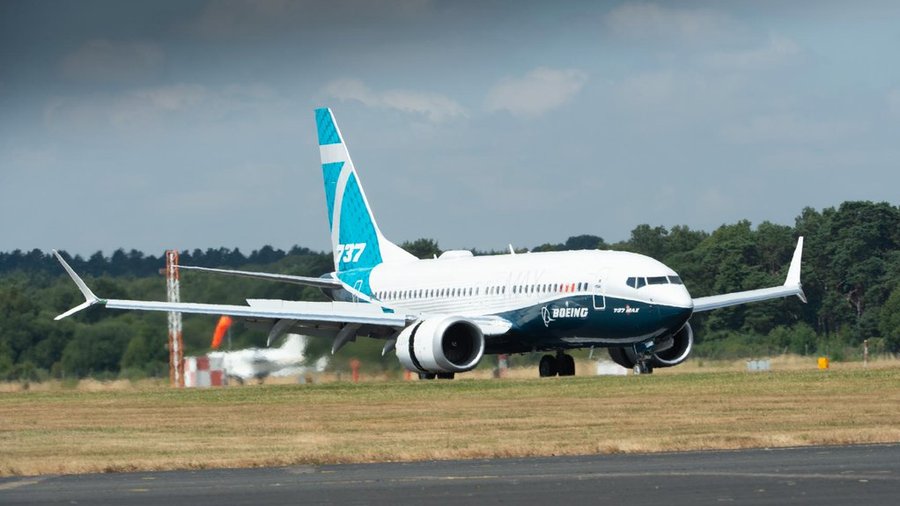Listen to this article 4 min
As the end of 2023 looms, The Boeing Co. (NYSE: BA) is facing down a series of self-imposed deadlines intended to raise investors' confidence after a challenging year — but whether it meets them will largely be out of its control.
With a big December push like it had last year, the company could conceivably still reach its recently reduced 737 Max delivery goal of 375 to 400 jets in 2023. But its efforts to ramp up production and certify its smallest 737 Max design by the end of the year will depend on the bandwidth of federal regulators, which have heightened their supervision over Boeing since the 2018 and 2019 crashes of 737 Max planes that killed 346 people.
The Federal Aviation Administration must still sign off on every single Boeing plane from its two top-selling lines, the 737 Max and the 787 Dreamliner, following an array of production errors on components provided by suppliers. And while Boeing has expressed confidence in its ability to achieve certification of the smaller 737 Max 7 model in the final weeks of the year, that will also come down to the regulator, which has had its own staffing challenges.
Though Boeing's delivery target is “not an impressive goal,” the company can likely make up the difference on the 737 Max, AirInsight Group President Ernest Arvai told the Business Journal.
November’s deliveries are expected to come in well above the 18 Maxes Boeing handed off to customers in October. (Reuters reported Tuesday the November total is 45 Maxes, though Boeing won't report its official tally until next week.) That puts the company in striking range of its target if it can rally the way it did in 2022, when a major late-year production effort resulted in 53 December deliveries from its Renton line.
“But is that something you want to commit to, when you don’t have the process flexibility that you used to?” Arvai said. “We know what Boeing is going to do, and they’ll try their best to do that, but we don’t know what the FAA is going to do.”
A new effort by Boeing to boost production, whenever it's achieved, will mean additional work for the company's network of around 1,500 Puget Sound-area suppliers.
The sticking point will be fuselage supplier Spirit AeroSystem’s ability to deliver, said TD Cowen senior aerospace analyst Cai von Rumohr. The Wichita, Kansas-based company installed new leadership in October, appointing former Boeing supply chain leader Patrick Shanahan as interim CEO and signing a deal with Boeing to provide cash flow through the next few years.
But the labor market in Wichita is even tighter than elsewhere, von Rumohr said, with companies like Textron Aviation and Johnson Controls ramping up hiring efforts.
“This is the first time in a long time that where they (Boeing) get in the next few years is kind of dictated by supply chain,” he said.
Upheaval at the federal level is also a source of concern, with a government shutdown possible in early 2024 and no budget yet passed to help the FAA get on top of its certification efforts.
Reuters reported this week that the regulator is taking a new approach to certifying design changes on aircraft in the wake of the Max crisis. That includes widening the definition of “major” changes to flight control systems and updating the way aircraft manufacturers report safety-related information.
“They have a fair amount of wood to chop to get the FAA in sync and moving forward, and a (continuing resolution that funds the agency only through Jan. 19) doesn’t help,” von Rumohr said, adding that companies like Gulfstream have received similar scrutiny of their new aircraft designs. “It’s definitely not just Boeing. The whole approach by the FAA has become more cautious.”
Boeing has also said it plans to restart production of its still-uncertified widebody 777X in Everett by year’s end. The company suspended production in May 2022 after it pushed the timeline for deliveries out to 2025. The new production will provide test aircraft as the company works toward winning type inspection authorization, which allows it to get credit for test flights overseen by FAA personnel.
The company will “want to keep that effort warm,” von Rumohr said.
Boeing did not respond to a request for comment.
In all, Boeing's goals are largely arbitrary and self-imposed, the analysts agreed. With its top customer for the Max 7, Southwest Airlines, having pushed its delivery schedule out into 2024, the potential for certification to slip into January or February will mean little disruption for the company’s operations. But if Boeing doesn't meet its commitments, it risks losing the confidence of shareholders and suppliers who are waiting on those production milestones.
Still, Boeing shares are up nearly 20% since the start of the year. The stock dropped to a 52-week low of $174.62 in October after the company revised its output expectations, but has since rebounded to near its 52-week high, closing at $234.16 Tuesday.
Arvai, however, struck a pessimistic chord regarding the company's ability to meet its short-term goals.
“When did Boeing last meet a target they set?” Arvai said. “Unfortunately, that’s where we are now. They have very little credibility left.”





